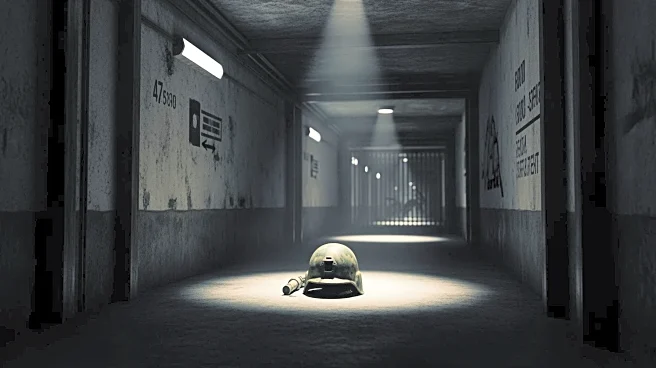What's Happening?
Israeli officials have confirmed that the remains of Lt. Hadar Goldin, who has been held by Hamas since 2014, are located in the same tunnel network in Rafah where approximately 200 Hamas operatives are trapped.
This information, now cleared for publication, adds weight to IDF Chief of Staff Lt. Gen. Eyal Zamir's condition that any safe passage for the terrorists would require the return of Goldin's remains. Prime Minister Benjamin Netanyahu considered allowing the evacuation of the operatives, but a final decision has not been made. The situation has sparked outrage among several government members and the family of an IDF reservist killed in Rafah.
Why It's Important?
The confirmation of Goldin's remains being held in Rafah tunnels is significant as it may shift negotiations around the remains of fallen soldiers. The situation highlights the ongoing tensions between Israel and Hamas, with potential implications for future military and diplomatic strategies. The decision on whether to allow safe passage for the trapped operatives could impact Israel's hold on the Rafah corridor and influence public opinion and political dynamics within Israel.
What's Next?
A decision on whether to allow safe passage for the trapped Hamas operatives in exchange for Goldin's remains is pending. The Israeli government faces pressure from various stakeholders, including political leaders and families of fallen soldiers, to resolve the situation. The outcome could affect Israel's military strategy and its diplomatic relations with Hamas.
Beyond the Headlines
The ethical and legal dimensions of negotiating with Hamas for the return of Goldin's remains are complex. The situation raises questions about the balance between humanitarian concerns and national security priorities. Long-term shifts in Israel's approach to hostage negotiations and military operations in Gaza could be triggered by this development.









